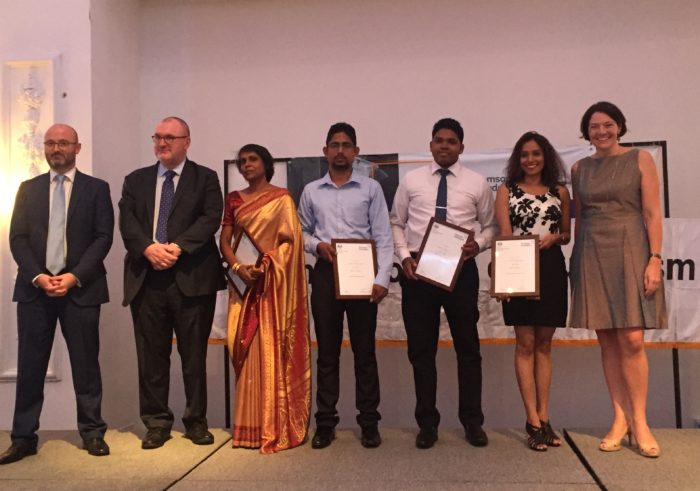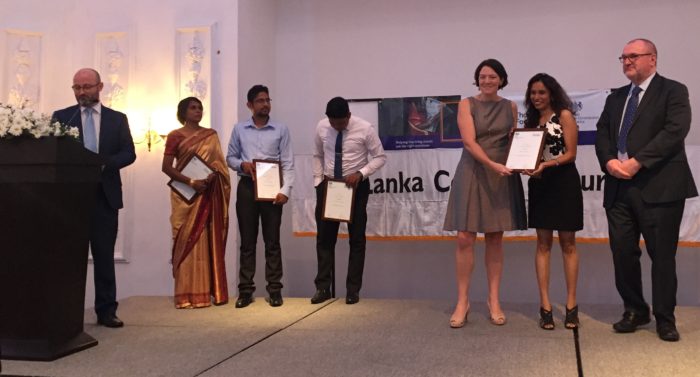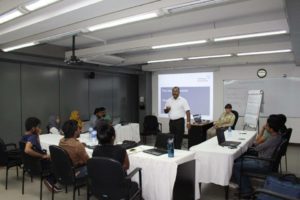3rd May 2016 Colombo, Sri Lanka
Supporting Press Freedom

Today is World Press Freedom Day. So it was appropriate that I spent Saturday evening at the Sri Lanka Inquirer awards ceremony, an event celebrating the culmination of British High Commission funded training and some of the best recent investigative journalism in Sri Lanka and Maldives.

There is no freedom so worth defending as Freedom of Expression. It is the rock on which most other freedoms are built, and from which they are defended. Investigative journalism is at the cutting edge of freedom of expression. At its best, it doesn’t just report events, but takes pains to uncover truths that are profoundly in the public interest. Entries in the Inquirer covered topics as diverse as environmental pollution and embezzlement, and ranged from multi-million rupee cover-ups to fraudulent misuse of school uniform vouchers.
The awards ceremony covered print, radio and TV. It had all the razzmatazz you would expect, with lots of handshakes, photos and certificates. That made it a good opportunity to reflect on how far Sri Lanka’s media environment has moved over the last 18 months or so: the last ceremony in 2014 was held in very different circumstances, with only the winners and the High Commissioner meeting in a private room, with no cameras and certainly no publicity. This change is reflected in Sri Lanka’s 24 place upward jump in the 2016 Reporters Sans Frontieres press freedom index. Sadly, the same cannot be said of Maldives, where the same report noted “ a poisonous climate [that] reinforces self-censorship.” According to the Index, Sri Lanka’s overall rating is now “bad”, with Maldives at the bottom of the “problematic” category.

The British High Commission has been funding the Thomson Foundation to run this training in investigative journalism in Sri Lanka and Maldives since 2013. Journalists have limited access to professional development, and years of self-censorship and direction to overcome. It was particularly positive that this year the training was not just Colombo based, but held also in Jaffna, Galle and Kandy. Provincial journalists play a particularly important role keeping their politicians honest and their industries clean.
We all benefit from scrutiny. It may not be comfortable, but it’s essential. I’m occasionally tempted to score it as a positive when one of our press releases is reproduced wholesale, but in fact we all gain far more from a truly independent and responsibly challenging media. And we certainly all lose when stories with no basis in fact hit the front pages.
So as we pause today to remember the journalists in Sri Lanka and Maldives who have lost their lives in the exercise of their profession, this project feels very timely. In Sri Lanka it is supporting journalists to exercise their newly available rights; in Maldives it is helping to defend rights under threat; and, in both countries, it is helping to provide the professional tools for the free, responsible and ethical reporting that is a benefit to all of us.